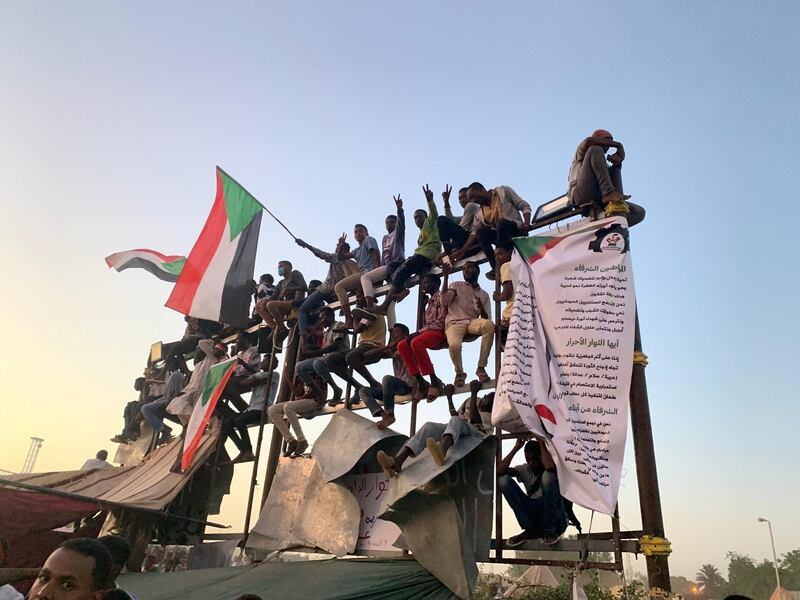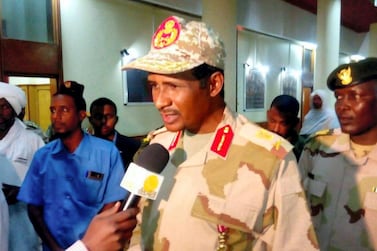Sudan's military and protest leaders on Monday offered differing proposals for a joint ruling body to guide the nation through a transition after this month's removal of president Omar Al Bashir.
Monday's talks marked the third round between the two sides, with little evidence of progress. But they continue to be optimistic that an agreement will be reached soon.
A spokesman for the military, Lt Gen Shamsedeen Al Kabashy, said the transitional military council wanted the body to be made up of seven military representatives and three civilians.
But protest leaders wanted a 15-seat council with eight civilians and seven military men.
Gen Al Kabashy said Monday's talks ended with both sides agreeing to further study each other's proposals and to meet again on Tuesday.
The protest leaders are representatives of the Alliance for Freedom and Change, an umbrella body of political parties, trade unions and other groups behind four months of deadly street protests against Mr Al Bashir's 29-year rule.
The alliance later on Monday said that no agreement was reached over the council and that the two sides were also discussing formation of a government and parliament.
The alliance wants a four-year transitional period before elections. The military initially said the period would be up to two years, but has not publicly responded to the proposal for a longer time.
Also under discussion are the powers and mandate of the three proposed bodies.
Meanwhile, a mass sit-in is continuing outside the armed forces' headquarters in central Khartoum.
The protest began on April 6 to force the military to move against Mr Al Bashir, a former general who seized power in a coup in 1989.
The number of protesters at the sit-in swells to hundreds of thousands in the evenings when festivities and political debate take place.
The proposed ruling council would replace the 10-man military council that took power after Mr Al Bashir's removal.
Gen Al Kabashy also said on Monday that the two sides agreed on measures to normalise life in the country, such as reopening roads and bridges leading to or near the military headquarters.
Without directly blaming the protesters, he said crime had spread, including theft, looting and building barricades that hindered traffic in the capital.
The alliance said it would only accept responsibility for what took place at the sit-in site, Gen Al Kabashy said.
But he denied that the military intended to break up the protest.







